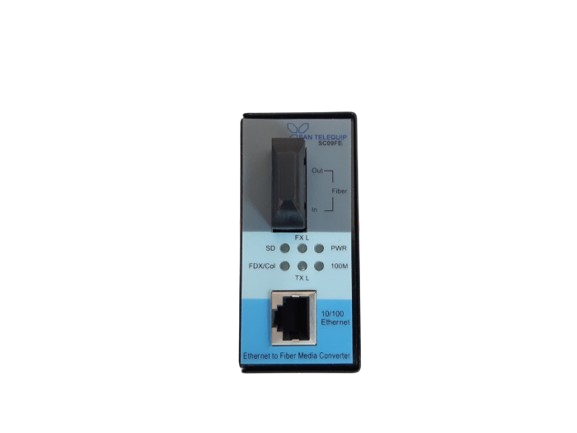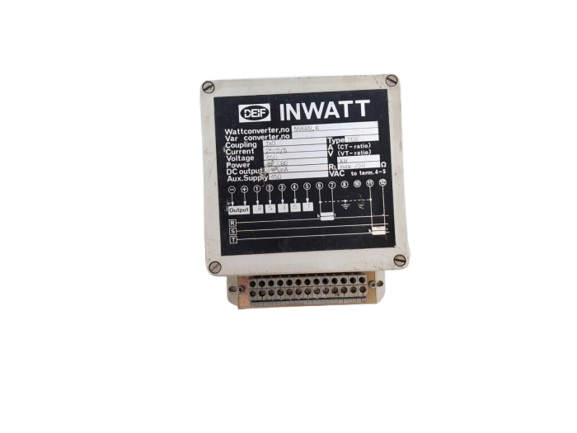Actually, converters used in industrial automation are efficient conversion units that optimize processes, ensure the efficiency of procedures, and enhance the operational performance of a system. More than ever, nowadays, this has grown into a much sought-after need in industrial operations to complement and manage renewable energy sources, energy management, and detailed control of electrical energy. Converters are at the center of this shift, enabling efficient power conversion and the ability to optimize energy usage, thereby saving tremendous amounts of energy.
This blog explains the role of converters in power management and industrial control, and how it contributes to energy efficiency in industrial automation systems. There, we take a deep dive into the types of converters, their application in power systems, role in robotics and automation, and how advanced power electronics and frequency converters change the face of future industrial automation.
What Are Converters in Industrial Automation?
Converters are essentially devices in industrial automation that convert electrical power from one form into the other. The conversion is often in the form of converting AC to DC, or vice versa, and may be used to break down larger voltages into smaller ones for devices requiring the latter. Being fundamentally crucial to ensure that different industrial systems may be compatible, these devices make machines, processes, and whole plants operate more reasonably at higher reliabilities by converting electrical energy into usable forms.

Converters in power conversion are necessary for energy systems, especially in those that require constant and precise energy consumption and electric power control. Frequency converters are some of the many power electronic components used in the control of the speed of electric motors and other components for the enhancement of industrial processes.
Types of Converters in Industrial Automation
There are several types of converters used in industrial automation. Each plays a different role in managing power systems efficiently and ensuring energy management is optimized.
1. AC to DC Converters (Rectifiers)
AC to DC converters are used to convert alternating current (AC) into direct current (DC). This type of converter is particularly useful in systems where DC power is required, such as for charging batteries, controlling motor speeds, and powering electronic devices. In industrial settings, these converters help ensure smooth operation of equipment by providing stable DC output.
2. DC to AC Converters (Inverters)
DC to AC converters, also known as inverters, are used to convert direct current (DC) back into alternating current (AC). Inverters are crucial for renewable energy systems, such as solar power, where DC power generated by solar panels is converted into AC power for use in the grid or industrial applications. They also enable bidirectional power flow in energy storage systems, ensuring efficient energy conversion and the use of renewable energy sources.
3. Bidirectional Converters
Bidirectional converters are used in systems that require the flow of power in both directions. They are essential for applications where energy needs to be stored and later used or for systems where power flow can be directed to and from the grid. These converters are widely used in renewable energy systems, such as solar power, wind energy, and electric vehicle charging stations. They ensure efficient energy transfer and allow power management systems to operate seamlessly.
4. Frequency Converters
A frequency converter is used to change the frequency of the electrical power supplied to a device or system. In industrial control systems, frequency converters are often employed to regulate the speed of electric motors, optimize energy consumption, and provide precise control over various operations. These converters are vital for industries like manufacturing, where speed control is a critical factor in process automation and industrial electronics.
The Role of Converters in Optimizing Energy Efficiency
It is also for this reason that converters are important in industrial automation, particularly through energy usage optimization. As energy costs increase and the issue of sustainability grows more relevant, converters offer industries a means of controlling and minimizing energy use.
Converters for efficient energy frequency, thus allowing better systems in terms of managing energy and also loss, becomes very important. Where systems need DC power along with AC power-and the notion of producing the right amount of energy in the right place without waste comes critically necessary. Advanced power electronics applied in converters can be used for energy system monitoring and control ensuring that the energy is only where and when needed is required.
Power Electronics and Their Importance in Industrial Automation
Power electronics is a subdivision of electrical engineering that elaborates on the conversion, control, and management of electrical power. Converters form the core systems for power electronics as they affect the conversion of electrical energy into a desirable form compatible with the industrial processes to which it will be put.
They are applied with the use of converters for power electronics in control of the power systems with a good control that would lead to an efficient flow of energy transfer with minimal losses. These advanced power electronics ensure control of the voltage, frequency, and the power factor, which ensures a stable and reliable power supply. Optimizing the way energy is converted and distributed can help minimize energy loss in power electronics systems.
The Vital Role of Converters in Robotics and Automation
In robotics and automation, converters play a vital role in controlling and optimizing the energy needed for driving motors, actuators, and other machinery. As sophisticated robotic and automation systems are appearing more and more in factories, overall energy use must be perfectly controlled with absolute precision.
The converters allow accurate regulation of DC power and AC power, hence efficient running of machines with reduced equipment wear and tear; this consequently cuts the cost of maintenance, makes operations more efficient, and sustainable with automation.
Converters in Electric Vehicles
Converters play an important role in electric vehicles as well. They involve the conversion of DC power stored in the cells of a vehicle's batteries to AC power that will be used to drive the vehicle by the electric motor. This is optimized energy utilization with improved vehicle performance, including a longer life for the battery. In the charging stations of EV, DC to AC converters are also involved in transferring the energy from the grid to the vehicle's battery.
Role of Converters in Renewable Energy Systems
As the world moves towards renewable energy sources, converters are becoming increasingly important parts of renewable energy systems. Several devices such as solar panels and wind turbines produced DC power that needs to be converted to AC power in order to interact with the utility power grid.

Converters support efficient conversion of energy and ensure feed into the grid of renewable energy sources, improving the use of renewable energy and reduced use of fossil fuel. They also enable an energy storage system to capture surplus power generated during the peak production time. When the demand peaks later, this extra power can be used.
Power Management and Industrial Control Systems
Power management is highly critical for industrial control applications. Electrical power control in an industrial setting needs to be accurate in order to maintain the stability of the system and its overall operational efficiency. They make sure that power flows into industrial systems in the right form at the right time. Converters are key enablers for optimizing energy use, ensuring compatibility across devices and systems, and supporting efficient power conversion through the integration of power electronic systems with energy management systems.
Converters happen to be the core technology foundation in today's industrial automation and play an extremely crucial role in optimizing energy usage, augmenting energy efficiency, and assuring smooth power system operations. From robotics and automation to renewable energy systems, up to even industrial processes, converters are the basic tools needed for modern industrial systems to efficiently and sustainably work. So, with these new industrial evolutions in view, power electronics and advanced power systems would stay at the heart of optimizing energy usage and lowering operational costs, bringing a greener and more efficient future for everyone. The input of converters to effective energy transfer is not just in terms of accuracy but also compatibility between various systems, which makes them very important in industrial applications. Their tremendous input to enhance workability efficiency cannot be underplayed since they are crucial for the optimization of energy systems towards sustainability and performance in the modern industrial environment.


Validate your login
Sign In
Create New Account